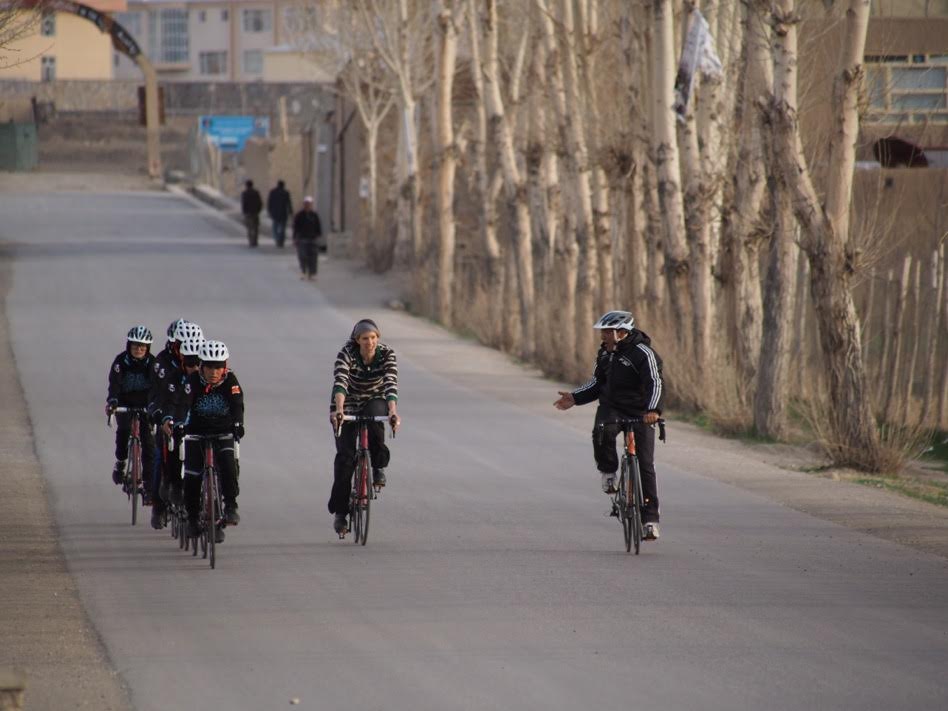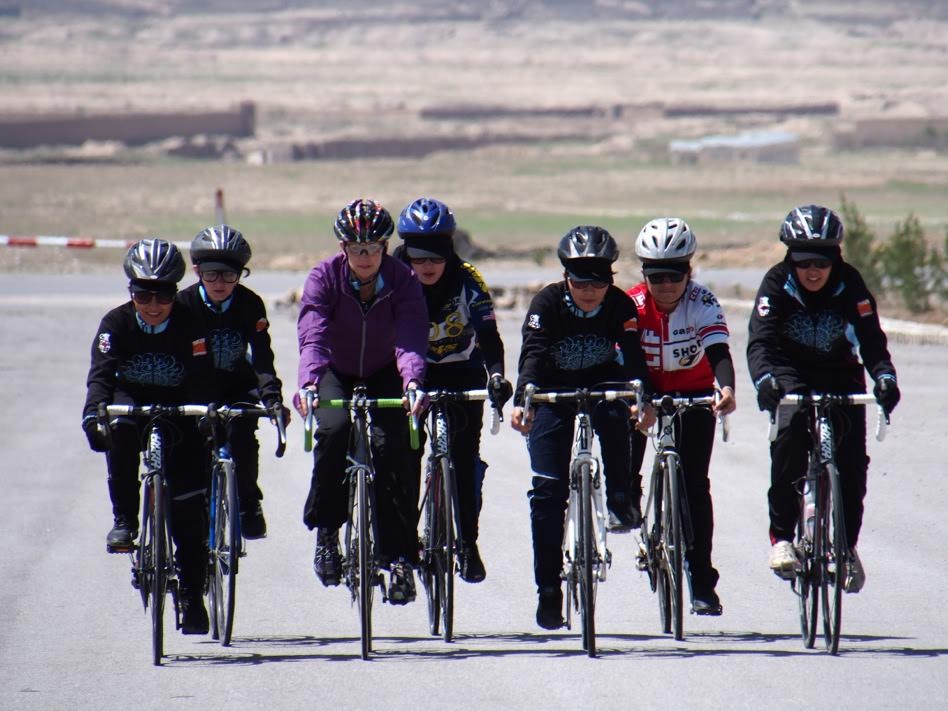Members of the Afghan Women’s National Cycling team are “thrilled” that they have been nominated for the Nobel Peace Prize and say any opposition they have received for riding bikes only has strengthened them, according to their team captain and the president of the lead nonprofit that supports them.
The team has good a chance as any of the nominees, said Shannon Galpin, president and chief operating officer of Mountain2Mountain, a nonprofit that has been working with the team since 2012.
“They are thrilled,” said Galpin, who spoke on behalf of the team. “Nobel Peace Prize is universal; everyone knows the significance of that.”
The team, a group of young women who ride the roads of Kabul in the early morning hours to train, were nominated for the award by 118 Italian lawmakers to promote “the most democratic means of transportation for all mankind.”
Breaking barriers
The women are defying cultural taboos that make women riding bikes immoral and in the eyes of many, illegal. They are often harassed and insulted; one has been hit by a motorcyclist while training on the highway, Galpin said. Passing drivers often throw rocks at them. It can be an interesting juxtaposition because often the women have family members who support them riding bikes, Galpin said.
It can be an interesting juxtaposition because often the women have family members who support them riding bikes, Galpin said.
“I’ve seen, and been the recipient, of rocks being thrown at the girls, but I’ve also seen young boys throw flowers at the girls as we’ve ridden by,” Galpin said.
Zhala Sarmast, the youngest member of the team, said the harassment doesn’t stop her or her teammates from riding.
“When people discourage you, three things can happen,” Sarmast said. “It can destroy you, it can define you or it can strengthen you. I let it strengthen me; that is why I am here today. I have come way too far to quit now.”
Sarmast even had a message for the haters: “Thank you for telling me all the bad words while I was cycling – you are the reason I am high in the sky today. To all those people who told me ‘you can’t.’ I can, and I showed you.”
Galpin and LET Media are producing the documentary “Afghan Cycles” about the team and women on bikes in Afghanistan. It’s due out early next year.
Afghan Cycles Trailer from LET MEDIA on Vimeo.
Generational shift
As the first woman to ride a mountain bike in Afghanistan in 2009, Galpin met the Afghan men’s national team in 2012 and their coach, who told her about the women’s team.
She’s been supporting them and telling their story since then, in hopes that the sport of cycling could normalize bikes for girls so that mobility and independence would be available to them for school, medical care and reducing gender violence, she said.
Galpin points to the United States’ own history with regard to women riding bikes for a cultural and generational shift in Afghanistan.
“American women were considered immoral and promiscuous, harassed and attacked for daring to ride a bike,” Galpin said. “It took a generation or two for that to become ‘normal’ and we still didn’t even have women competing in cycling until the 1984 Olympics. So we have to look at this long term and realize that change is slow, and it takes a generation to see the effects of the seeds that have been sown.”
Destination: Olympics
Galpin, whose nonprofit’s mission is to empower women and girls in conflict zones, now is working on bringing the team to Boulder or Colorado Springs, Colo. to train in hopes to prepare them for the 2020 Olympics, Galpin said.
“We have a team of professional coaches and trainers coming together to help develop the team in hopes of a chance of a girl taking part in the 2020 Olympics,” Galpin said, although she wouldn’t confirm who.
To Sarmast, no challenge, even making it to the Olympics, is too tough for the team.
“Don’t cycle away from the challenges, cycle over them and achieve your goals,” she said.
As for another big feat – the Nobel Peace Prize – Galpin said they have a good shot at it, even though it’s a “big nomination at such an early stage,” she said, especially considering the refugee crisis is at the forefront of a global discourse and Greek islanders who helped refugees arriving on their shores from Turkey by boat are among the nominees.
“These girls are challenging the barriers in one of the most difficult places in the world to be a woman and an active war zone,” Galpin said. “Bravery doesn’t even begin to describe them.”
